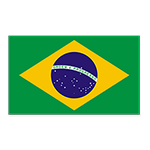Arthur Antunes Coimbra - A Detailed Overview
Early life
Arthur Antunes Coimbra, known professionally as Zico, was born on March 3, 1953, in Rio de Janeiro, Brazil. His family, passionate about football, gave him his first ball when he was just a toddler. At the age of 14, he began playing youth football for Flamengo, the club he would later lead to new heights.
Club career
Zico began his professional career with Flamengo in 1971. Over the next decade, he powered the team to four Brazilian Série A Championships (1980, 1982, 1983, 1987) and the Copa Libertadores in 1981. His playmaking and scoring ability made him a darling of the Flamengo faithful and heralded a golden era for the club. In 1983, he moved outside Brazil for the first time, joining Italian side Udinese. Despite his efforts, the club struggled in his two seasons there. In 1985, Zico returned to Flamengo, where he finished his professional club career in 1990. After retirement, he played occasional matches for Kashima Antlers in Japan's J-League, who attributed the club's subsequent success to the high level of technical instruction he provided.
International career
Zico made his debut for the Brazilian national team in 1976, quickly becoming a key player due to his creative ability, vision, and exceptional dribbling. He played in three World Cups (1978, 1982, 1986), though the trophy eluded him. Despite that, Zico is regarded as one of the best players in football history not to have won the World Cup. His 48 goals in 71 appearances makes him the fifth-highest goalscorer for his national team.
Style of play
Often regarded as the best player in the world in the late 70s and early 80s, Zico was a classic number 10 - gifted with creativity, skill, and a keen eye for goal. Primarily an attacking midfielder, he was renowned for his technique, dribbling ability, and brilliant free-kicks. A prolific goalscorer, Zico often dropped deep to get on the ball, drive forward, and unleash shots or through passes.
Legacy
Zico is considered one of the greatest Brazilian footballers of all time. He is often proclaimed as 'White Pelé', in reference to his sporting prowess. His creativity, technical skills, and scoring ability have influenced a generation of players. Zico was named by Pelé as one of the top 125 greatest living footballers in 2004. His contributions also extend off the field; his work in Japanese football helped popularise the sport and develop its domestic league, while his leadership at Flamengo remains a golden era in the club's history.
Coaching Career
After leaving playing, Zico moved into coaching. His first major managerial role was at Kashima Antlers, a team he had formerly played for. Under his guidance, the Antlers enjoyed significant success, winning an impressive array of titles in the late 90s. In 2002, Zico took over at the helm of the Japanese national team, leading them to the 2004 Asian Cup. His ability to spot young talent and emphasis on technical skills were seen as key factors in the development of Asian football. Zico also managed Fenerbahçe, Olympiakos, and CSKA Moscow, as well as a second spell at Flamengo. Despite a mixed record, his contributions to football as a coach have further cemented his legacy in the sport.
Personal Life
Zico is married to Sandra de Sá and they have three children. His younger brother, Edu, also had a successful footballing career. Despite his fame, Zico has always striven to keep his private life out of the spotlight. He is known as a family man and expresses his love for Brazil and football as a continuous part of his life.































